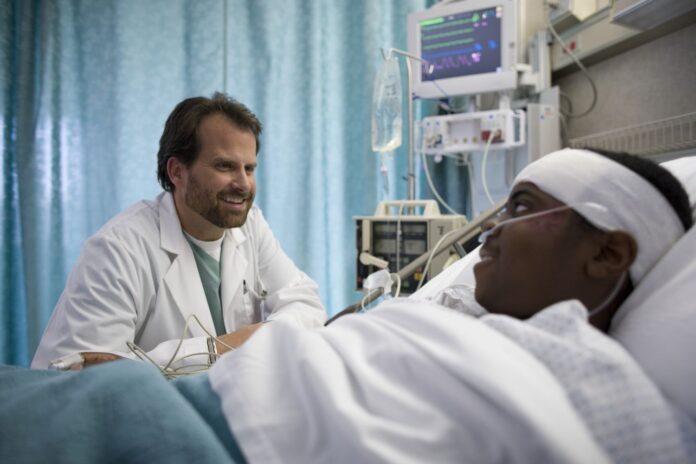A surgical procedure is an easy thing to dread. Whether it’s you going under the knife, or someone close to you, it’s easy to spend the days and weeks leading up to the event thinking about exactly what’s going to happen when you get to the hospital.
But it’s worth also thinking about what’s going to happen as you recover from the procedure. After all, that’s the phase that you actually have control over. There are a few steps you might take to make life easier during this period and to aid the recovery process.
Frequently Asked Questions
After the surgery, you’ll want to know exactly how the operation went. Make sure that you have in mind a few questions for when you come around. The first and most obvious question might be: ‘did the operation go as expected?’, but you should also ask about the prognosis for recovery. You might want to take notes – or even (with permission) film the conversation.
Following Medical Aftercare
Every surgical procedure is different, and thus to an extent, your recovery will be tailored to your needs. Some people will be able to get back to normal relatively quickly and with minimal intervention. Others will need to be cared for more stringently.
Your doctor should provide you with the appropriate treatment after your surgery. If they fail to do so, then complications may result. This is a rare situation, but medical professionals who make this sort of error leave themselves vulnerable to surgical error claims.
Avoiding Blood Clots
If you’re spending the recovery period lying in bed, then you put yourself at risk of blood clots – because blood will naturally pool in your legs. As soon as it’s reasonably possible, you should perform preventative exercises. This might mean simply flexing and rotating your legs.
Other anti-clot measures include support stockings and blood thinners. Again, you should be provided with whichever treatment is appropriate.
Aiding Recovery
In general, the sooner you can be up and active again, the more quickly and safely you’ll recover. This doesn’t mean rushing, however – moving too fast and you’ll risk causing a setback. Short walks, being mobile around the home, and eating and drinking will all help. Build your strength back up gradually. If you’re in doubt over whether you should be doing something, then it’s best to listen to your body and err on the side of keeping a little bit mobile!
Preparing for Home
We should also think about the first minutes and hours after you are discharged from the hospital. You’ll want all of the appropriate equipment and care in place ahead of time. This might mean walking sticks, frames or wheelchairs. Most importantly, you should have a means of getting home. You won’t want to be driving!
Read Also
- Modern Approaches to Adolescent Mental Health Treatment for Lasting RecoveryWith increasing numbers of teens experiencing emotional and behavioral health concerns, adolescent mental health treatment has become more essential than ever. Conditions such as anxiety, depression, trauma and mood instability are on the rise, and effective support must evolve with these growing needs. Today’s treatment models blend evidence-based therapy with flexible access and holistic care, giving… Read more: Modern Approaches to Adolescent Mental Health Treatment for Lasting Recovery
- How to Find a 5-Star Dentist Near YouChoosing a dentist is more than just finding someone who can clean your teeth. It’s about selecting a trusted partner in your long-term oral health. A 5-star dentist not only provides excellent clinical care but also delivers a positive patient experience, from the moment you walk in until the moment you leave. Whether you’re new… Read more: How to Find a 5-Star Dentist Near You
- Your Easy-Peasy Guide to Brewing Amazing MatchaHey there! So, you’ve heard all the buzz about matcha – that vibrant green powder that’s not just pretty but packed with good stuff? It can seem a little fancy and intimidating at first, but trust me, making a delicious cup at home is simpler than you think. Forget complicated ceremonies for now; let’s just… Read more: Your Easy-Peasy Guide to Brewing Amazing Matcha
- Embracing Holistic Wellness: Insights from a Lansing, MI Health CenterReframing Health: Moving Beyond Symptom Management Treating only symptoms often offers quick relief, yet long-term results stay out of reach. When care zeroes in on isolated complaints, the bigger picture, such as stress, behavior, or lifestyle, often gets missed. Research shows that whole-person care, which looks at physical, emotional, and environmental factors, yields better outcomes… Read more: Embracing Holistic Wellness: Insights from a Lansing, MI Health Center
- VO₂ Max Testing Explained: What It Is & Why It Matters for Your HealthVO₂ max sounds like a term reserved for elite athletes, but it’s among the most accurate measures of your lifetime and general condition. Moreover, it goes beyond performance. Monitoring your VO₂ max will help you to ascertain your body’s capacity to control stress, its oxygen consumption efficiency, and your internal ageing process. If you have… Read more: VO₂ Max Testing Explained: What It Is & Why It Matters for Your Health
- So, what exactly is matcha?Think of matcha as green tea turned up to eleven! Instead of steeping leaves and tossing them out, matcha is made by grinding whole green tea leaves into this super-fine, vibrant green powder. You whisk it right into hot water (or milk!), meaning you’re drinking the entire leaf. That’s why folks say you get way… Read more: So, what exactly is matcha?
- How to Tell When It’s Time for Professional Senior Care SupportCaring for an aging loved one is a journey filled with love, patience, and difficult decisions. One of the toughest choices families face is knowing when it’s time to seek extra help. In this article, trusted Los Angeles caregivers for seniors explore the signs that it might be time to bring in professional support, not… Read more: How to Tell When It’s Time for Professional Senior Care Support








